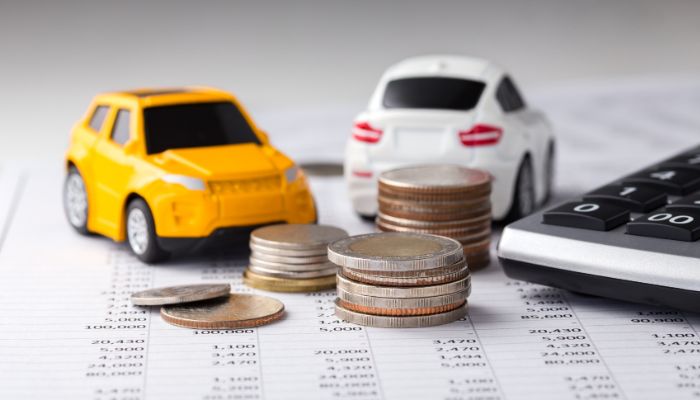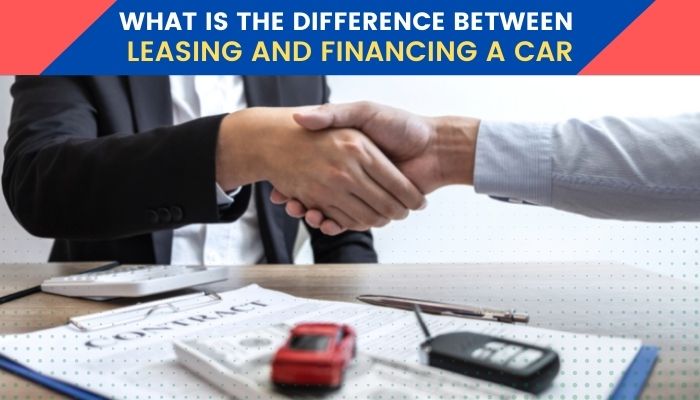Hyundai Sonata Lease $99 Deals | The 5 Key Factors
In the recent past, leasing is increasingly becoming a popular option than before. So to say, current car buyers, lease more than 40% compared to the rates in the last five years. The main reason behind this increase is that they can drive their dream cars at a relatively lower cost. If you are thinking along the same lines, check out the guide below on what you should know before leasing the Hyundai sonata lease $99 among other vehicles.
Deciding if you should purchase your first car or lease it can take a serious toll on your decisions. This is why it is prudent to understand the various terms and conditions behind either leasing or purchase. You should then compare to find one that makes more sense to you. When it comes to leasing, you can find a luxurious yet cheapest car to lease with no money down, which can’t be compared to the cost of purchasing one.
The value of any vehicle starts depreciating once it hits the road, especially in the first three years. Therefore, it would be prudent financially to purchase a car that is more than two years old. However, you should consider leasing if you prefer a new car. This is because the monthly payments are lower compared to paying for a new car. Besides, you can find exciting deals such as the $99 car lease no money down that allows you to lease a car without making prior down payments.
You can find various Toyota lease deals zero down lease and other car-specific deals available on the market currently. This is in response to the surge in the number of people preferring car leasing to purchase. However, to find the best deal, below are some important things you should know.
5 Key Factors to Consider Before Leasing Hyundai Sonata
1. Key Contract Terms and Length of Lease
It is important to know how long you will be leasing the vehicle. Most lease terms last between two to four years. However, leasing contracts vary and can be customized to suit individual needs. That said, consult experts to find out suitable leasing terms and mileage cap, which typically ranges from 12000 to 15000 miles per year.
To most drivers, car-leasing contracts can be confusing more than when buying a vehicle. This is why you should approach the company well prepared. You should begin by studying some of the common leasing contract terms. This will help you understand the costs, terms, and fees.
All lease contract terms, including those of cars for 100 a month contracts have a list of the various costs and fees in their contracts. However, the essential items to look into include:
- The Gross capitalized cost – this is the sticker cost of the vehicle. Like any other worthwhile purchase, try negotiating for some discounts.
- Adjusted capitalized cost – this is the actual price paid. It is the gross capitalized price less the trade-in options, down payment, if any was made, and negotiated discounts.
- Residual value – this is the estimated value of the car at the end of the lease. If your car has a high residual value, it means that it depreciated less and thus low payments. The car manufacturer often estimates residual value after the end of the lease agreement.
- Depreciation – this describes the value that the car lost over time due to usage over the months and miles driven. This can be stated as the rental fee for the car over the period leased.
- Money factor – though not a straight forward interest rate, this describes the interest rates payable during the lease period. The interest rate is charged based on the adjusted capitalized cost and residual value.
- Monthly lease payment – as the name suggests, this is what you will be paying every month. It equals to depreciation + sales tax + finance charges.
With all these statements described, a good Hyundai Santa FE lease or any other car deal is one with a low adjusted capitalized cost, highest possible residual value, and the lowest possible money factor.
2. Available Financing and Payment Options
Just like when purchasing a new or used car, there are various financing options that are available when looking for Hyundai lease deals. This is why you should read deeply and understand the various lease specials and financing options before finding a dealership.
Leasing can be a difficult option if you have bad credit. If you can’t get the financing terms you need, you should consider one of these three options. You can either opt to wait and work on improving your credit score, pay a high down payment, or reduce the annual mileage during your lease contract. Having a trade-in can also provide a good start.
The thinking behind this is that with a higher down payment, you will have reduced monthly payments. Experts contrasting to this argument that you should put down as little down payment as possible. This is because paying a huge down payment leaves you with no financial strength if the vehicle becomes wrecked a few weeks or months after the lease.
3. Risks Involved with Leasing
Leasing a vehicle is not any different from renting it. Therefore, it is prudent that you observe the various maintenance requirements to avoid attracting extra fees. You should also be cautious when driving the vehicle around to avoid unnecessary wear and tear charges, including minor cosmetic issues.
All Hyundai Sonata lease $99 agreements feature additional fees, including the lease drive-off charges and return fees. Drive-off fees are payable as a deposit that is made Upfront and includes the monthly premiums for your first month. If you exceed the mileage cap or driven more than the leasing agreement had specified, you will also be subjected to additional fees. That said, always review the lease agreement and ask the dealer about any additional or hidden fees in the contract.
4. Ending The Lease Early
What will happen if you turn the car in earlier than agreed? Well, such an innocent mistake can lead to the loss of thousands of dollars as termination fees. With most lease agreements, even if you return the car earlier, you will have to pay for the amount owed until the agreed end of the lease. This results in the loss of a lot of money, especially if you returned the car prematurely. Always check the contract for termination penalties, terms, and conditions.
That aside, there are various other options for breaking the lease prematurely. For instance, situations where you find a client who agrees to take over the lease and payments for the remaining time. Even though changing the lease details can be time-consuming and tedious.
Another option is working with companies that will help you sell the remaining lease to interested buyers for a fee. You can also consult your dealership if they are willing to trade in your current vehicle with another car. Lastly, you can opt to purchase the vehicle from the dealership completely.
5. Leasing Affects Your Credit Score
Leasing, as mentioned, can be difficult if you have bad credit. Similarly, leasing can affect your credit score. Leasing is not different from taking a car loan and affects your credit. Once you make an application for a car lease, it triggers a credit inquiry on your credit report, which has a small, but significant effect on your credit score.
That aside, opting for a lease increases credit utilization, which affects your credit score. With time, your credit utilization drops, and timely repayment can only increase your credit score. Leasing is considered an installment loan. However, having a small installment loan doesn’t have a significant effect on credit score as having high utilization on credit cards. Therefore, like other forms of credit, skipped or late payments decrease the score.
4 Mistakes to Avoid When Leasing Hyundai Sonata
There are a lot of gray areas when it comes to leasing. This is why most people end up making several mistakes that cost them during the agreement period. Below are the top 4 common mistakes to avoid when leasing a car.
1. Paying a lot Upfront
Most car dealers place adverts with low monthly payments on the vehicles. However, to get such deals, you will have to make a huge initial upfront payment. This money should cover the lease in advance. However, what will happen if the car is wrecked or stolen a few months after leasing?
In all cases, the insurance company reimburses the leasing company the value of the car, but your upfront payments will not be refunded. This leaves you without a car, even after paying huge deposits. That said, it is prudent not to pay more than $2000 upfront fees when leasing the car. In other cases, find options where you pay nothing Upfront.
That aside, note that if you pay a low amount in advance, you will have to incur high monthly installments. However, you can organize your payments and deposit them in an interest bearing account prior. With this, if anything happens to the vehicle, the company will not have much of your money.
2. Ignoring GAP Insurance
Before driving a leased car, ensure that you take GAP insurance. As the term suggests, this is the difference between what you owe on your lease and the total value of the vehicle. For instance, taking that the residual value of the car according to the agreement is $15000, the insurance company will value the car if it gets totaled before the expiry of the lease, determine its market value and pay the amount to the dealership.
That said, always ask the dealer if the contract includes an option to include GAP insurance coverage. If it doesn’t, find an option that includes GAP insurance or pay to have the inclusion.
3. Underestimating the Miles
If you find a lease with low quoted monthly installments, it is probably because the lease agreement has a restriction on the miles to be covered per year. Most dealers offer leasing contracts with annual mileage ranging between 10,000 and 15000 miles. Exceeding these limits comes with fees, which could be as high as 30 cents per exceeded limit mile at the end of the lease period. Therefore, if you exceed the limit by 2000 miles, you will end up owing the dealer $6000 on a car you won’t be any longer driving.
To avoid such extra charges, it is prudent to study your driving habits before leasing any car. If you think you will drive past the agreed limits, go for a contract with a high mileage limit. Note that this will probably increase the monthly installments.
4. Not Maintaining the Vehicle
Leasing often comes with strict terms and conditions that should be observed. Maintenance is among the well-laid-out practices that you should follow to the later. You will be hooked for additional fees if the car sustains damage that exceeds normal wear and tear.
Most companies will ignore small scratches or marks equivalent to business cards and won’t charge any penalties terming them as normal use. However, you will part with additional fees if the damage is extensive. Similarly, the meaning of “normal use” varies from one dealer to another.
Before turning the car in, an inspector is assigned to check the car for dents, scrapes on the body, wear and tear on wheels, windows and windshield and upholstery. Inspectors are not lenient with this, therefore, ensure that you maintain the vehicle accordingly.
The Bottom Line
Leasing a car is a short-term option of buying a car. Simply put, car leasing is a long term car rental, where you pay for the car for an agreed period and return once the lease expires. There are both benefits and drawbacks associated with going for the Hyundai sonata lease $99. Among the benefits is that you can get new car models every year, there are low monthly payments and minimal repairs. However, on its limitations, you will always have to make payments to continue the lease and has a slight effect on the credit score.




